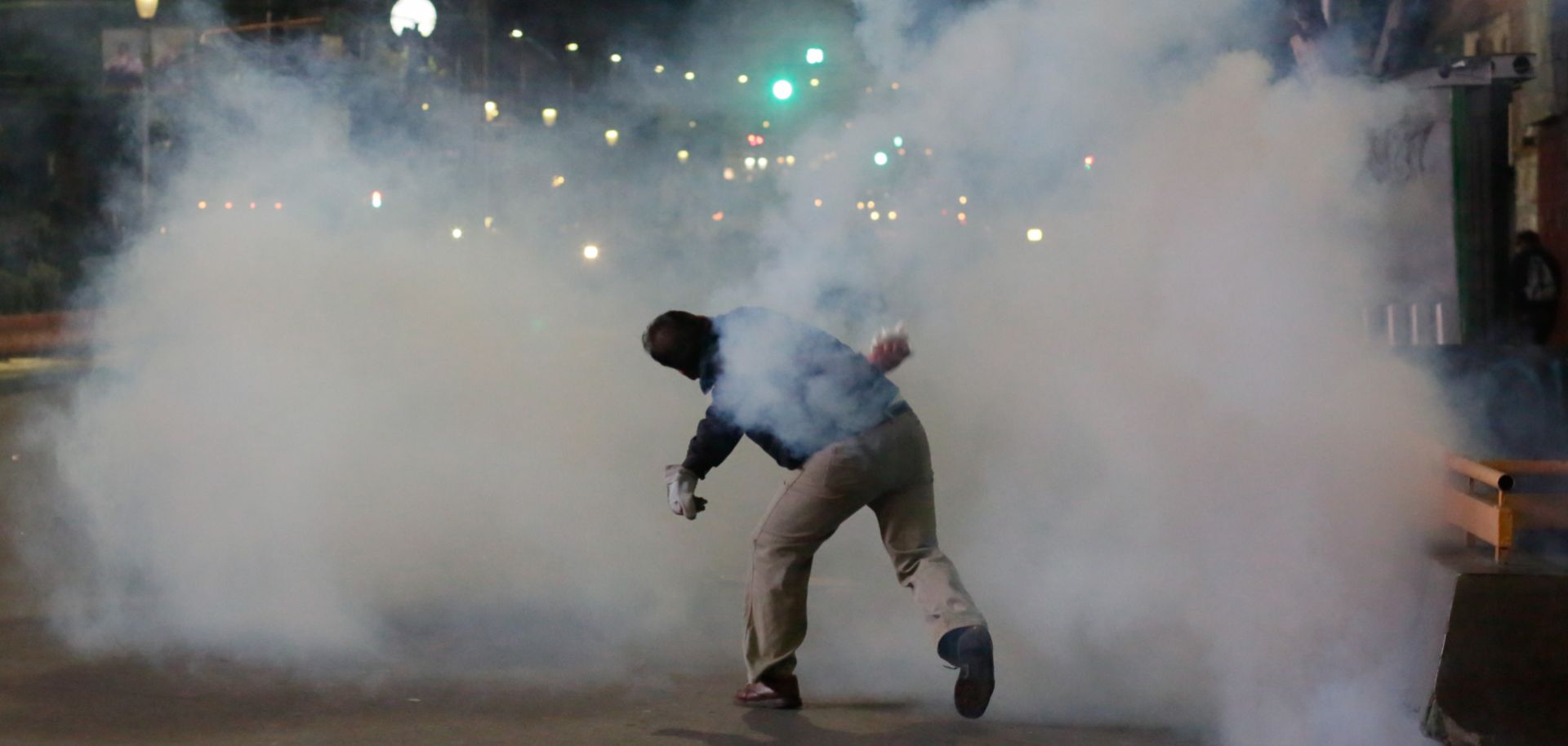ASSESSMENTS
Bolivia's Election Hangover Looks Likely to Linger
Nov 7, 2019 | 10:00 GMT

A demonstrator throws a tear gas canister during a demonstration against Bolivian President Evo Morales on Nov. 5, 2019, in La Paz, Bolivia.
(Gaton Brito/picture alliance via Getty Images)
Highlights
- Clashes have gripped the streets of Bolivia's cities, including the capital of La Paz and Santa Cruz, the country's commercial center.
- The dispute risks further dividing the country between the pro-Morales highlands and pro-opposition lowlands.
- Ongoing political uncertainty and protests over Bolivia's recent presidential election could limit the country's ability to exploit its abundant natural resources.
Subscribe Now
SubscribeAlready have an account?
